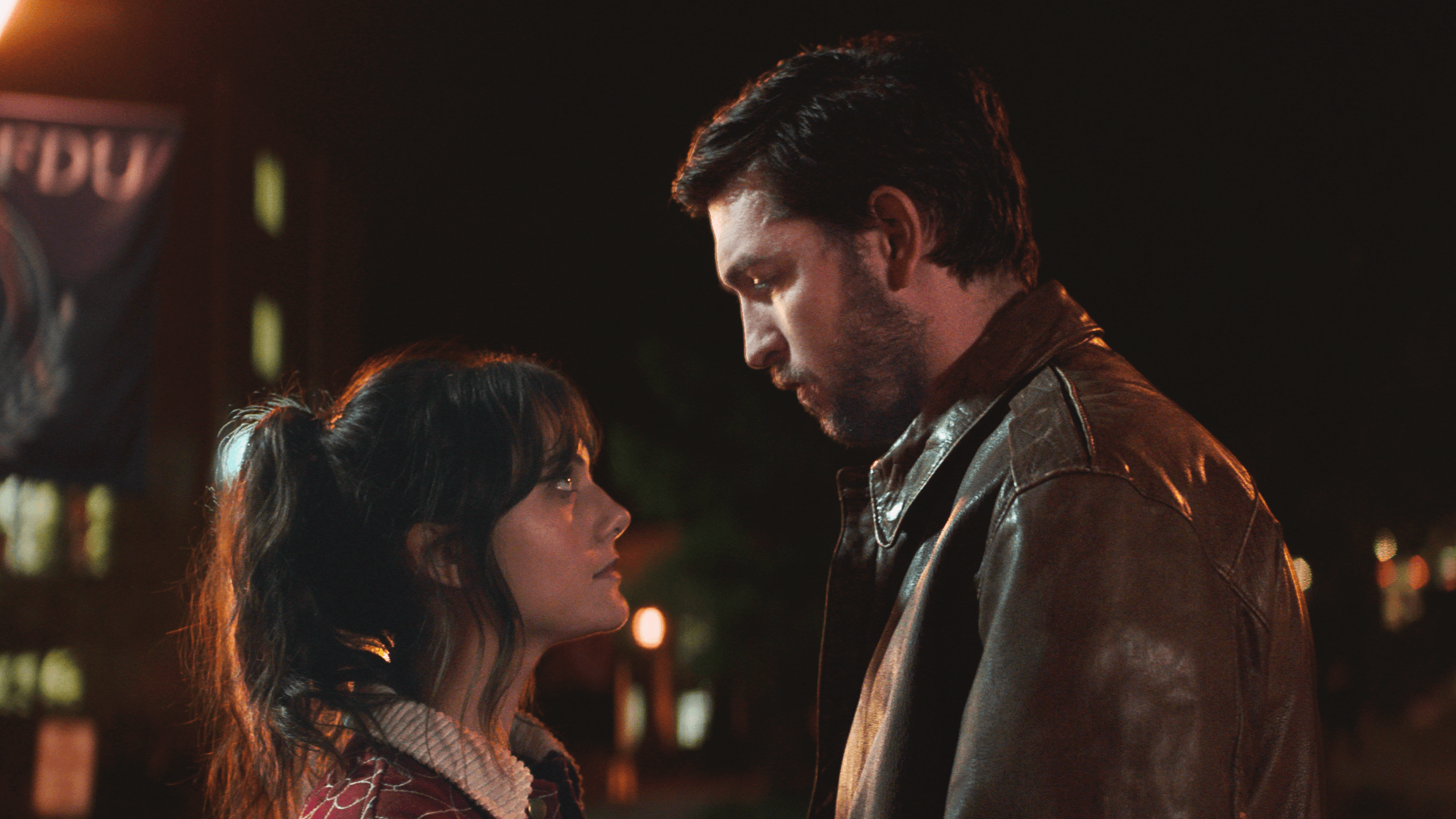SUMMARY
This is AI generated summarization, which may have errors. For context, always refer to the full article.

Cat Person, the 2017 short story by Kristen Roupenian published in The New Yorker, delves deep into the uneasiness and paranoia that arise when determining whether a guy you’re dating is nice or a murderer. It deals with unspoken power dynamics, the inability to communicate, and the realization that someone may not actually be as good as you expected.
On the other hand, Cat Person, the film, imagines the modern dating scene as a delicate dance. Each step from both parties can be like defusing a ticking time bomb. One misstep and the fragile balance may be shattered, unleashing boundless chaos and turmoil. Though, maybe a bit too much chaos in this version.
Needless to say, this was a nerve-wracking watch. It’s messy, but you can’t take your eyes away. Its closest comparison is Promising Young Woman, but imagine if that film had escalated its final act — which was already bad — into a fiery action-thriller. Not just that, it also slides into various genres like horror, comedy, and espionage, sacrificing a natural and organic feel in the process. It’s a lot happening at once, saved only by its performances from two up-and-coming actors.
The film follows Margot (Emilia Jones), a young college student who works at a movie theater chain, and Robert (Nicholas Braun), an older and peculiar guy who has an affinity for nerdy stuff. It’s a constant push and pull between Margot and Robert, both trying to stake their claim as the more dominant one, the nicer one, or the more reasonable one.
Braun is perfect as Robert. His towering presence is offset by his endearing awkwardness, making him the ideal Rorschach test in that people can’t quite decide if he’s a serial killer or a genuinely kind soul. Jones, fresh off the Best Picture-winning CODA, is assured and actually the anchor for most of the film’s genre shifts. It’s easy to sympathize with her, and she carries a lot of emotional weight, especially in surprisingly tense moments.
They have competing influences coloring their ideas on love and what an ideal partner should be. Margot is constantly mentored by her feminist friend, Taylor (Geraldine Viswanathan), who is constantly on internet boards in defense of women’s rights, sometimes going too far in her embittered battle against men. Robert is consumed by his consumption of pop culture masculinity, particularly in Harrison Ford films. “A lot of what he’s caught up in is different ideas of masculinity,” director Susanna Fogel shares. ”Some of them are competing with each other, but that culture has told him what he should be.”
All of this comes to a head in the penultimate sex scene, which unravels from the perspective of Margot, who undergoes a self-dialogue rationalizing her decision to commit to the act, her subsequent regret, and her inability to tell Robert what she truly feels. In an interview, Jones gives insight into her position on its lead characters: “No one’s the bad guy in this situation. You can’t really say, ‘Oh, she should’ve said no,’ or ‘He should’ve checked,’ or ‘He should’ve this, that, and that,’ it’s just two people that are having two completely different versions of the same moment and they just don’t know how to communicate.”
The film makes you feel overlapping emotions at once, unsure of who to side with or who to root for. Each character makes questionable decisions that lead to disastrous, even comically bleak, situations. The most intense emotions come at moments when the misunderstanding is crystal clear, so as a viewer, you’re screaming at them to explain things properly. That can be a good thing, but also an extremely bad thing, since the film feels like it has lost its hand in navigating its own complexity.
There’s a scene when Margot jokes about Robert being a murderer as a way to cope with her anxious thoughts. Robert, likely feeling like he needs to deflate the tension, doubles down on the murderer bit, only to make Margot probably more uncomfortable and doubt his character even more. This is the cycle of their relationship, a series of misunderstandings that lead to self-fulfilling prophecies that could’ve been avoided.
What makes Fogel’s adaptation a lot more different than Roupenian’s short story is that while both deal with how a younger girl and older guy obviously misalign, the film operates in the pockets of grey that are entrenched in a story that is, to its core, a portrait of how politics and culture influence love in the contemporary era.
Cat Person literally begins with soundbites from a film echoing in the hallways of a movie theater. At one point, Margot and her mom perform a Marilyn Monroe song that the former was initially reluctant to do due to its conservative undertones. Reddit and online communities play a huge part in influencing how Taylor views men and her personal principles. And if it weren’t obvious enough, there are Star Wars collector items scattered across Robert’s house. All of these are the indirect yet unwavering forces of cultural norms shaping our perceptions and beliefs, and they have taken relationships as their prey.
Does this exonerate Robert’s weirdness and creepy remarks? No. Does this excuse Margot’s aversion from being candid with him? Not in the slightest. But what it does showcase is the interplay of societal norms and cultural products working behind the scenes to prevent the two from lying flat with their bellies out and being truly comfortable with each other. They are communicating via their ideas of each other, not with who they really are. However, in the way the film plays out, those disparate elements of culture, while promising, fail to coalesce seamlessly.
Because of these ingredients, I anticipate Cat Person will engender a schism between opposing factions, each justifying how their chosen protagonist is actually in the right or wrong. This is akin to the divide that emerged when 500 Days of Summer was released (coincidentally, also a Sundance film), with fervent supporters of both Summer and Tom eventually clashing on the internet streets.
In a similar vein to the narrative that birthed it, Cat Person is poised to become a lightning rod for discussions surrounding the intricacies of dating and the difficulties of being a woman, a man, or simply someone seeking love. Honesty plays a huge role in the film, mainly how this generation seems to have lost that word in the dictionary. But because of its new additions, like the wild ending and uneven genre-blending, the film’s message can get lost in the shuffle. – Rappler.com
Add a comment
How does this make you feel?




![[Only IN Hollywood] Eugene Domingo steals show at Manila International Film Festival](https://www.rappler.com/tachyon/2024/02/MIFF2024EugeneDomingoJokingkyAsksForAKissByDingdongDantesBeforeAnnouncingBestActorWinnerBySthanleeBMirador1.jpg?resize=257%2C257&crop=163px%2C0px%2C955px%2C955px)

There are no comments yet. Add your comment to start the conversation.